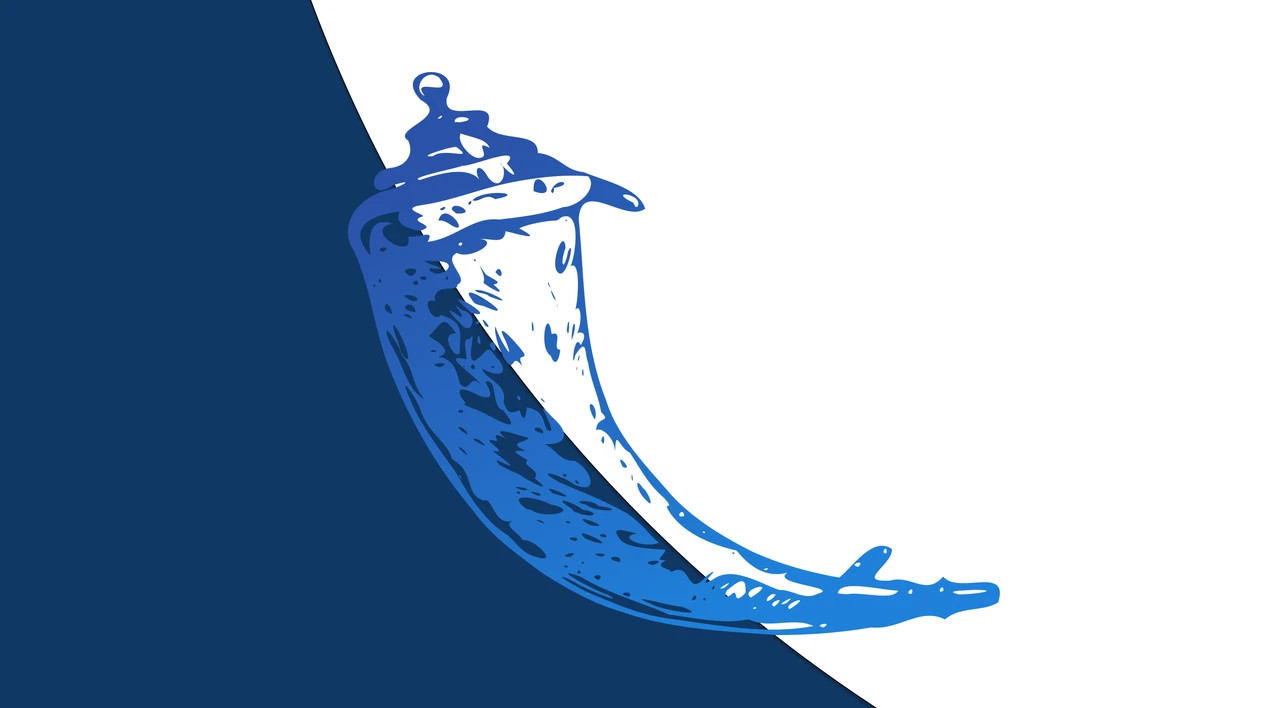SHARE
What is Flask? Overview of the Flask Python Framework in 2025

Contents
Contents
Introduction
In the world of web development, backend frameworks play a crucial role in building robust and efficient web applications. One such framework is Flask, a popular and lightweight Python framework.
In this article, we will explore what a backend web framework is, delve into the fundamentals of Python and Flask, discuss its applications, highlight its popularity, compare it with Django, and provide an overview of the advantages and disadvantages of using Flask.
What is a Backend Web Framework?
A backend web framework is a collection of tools, libraries, and modules that allow developers to build the server-side components of web applications.
These frameworks provide structure, pre-built functionality, and a set of conventions to streamline the development process.
They handle tasks such as routing, database management, authentication, and more.

What is Python?
The Python language is a powerful, versatile, and widely-used programming language known for its readability and simplicity.
Python can be used to create web applications or make a database connection to render dynamic web pages.
Python was developed by Guido van Rossum in 1991 with an emphasis on being easy and fun – the name “Python” is an homage to the British comedy troupe Monty Python.

What is Flask?
Flask is a micro-framework written in Python. It was developed by Armin Ronacher the head of an international group of Python enthusiasts.
Originally, the Flask project was meant to be an April Fool’s joke, but the creators soon realized that what they were joking about could actually prove quite useful as a web framework for building a web app.
The Flask framework uses the Web Server Gateway Interface (WSGI, pronounced “whiskey”) toolkit which is a common interface between web servers and web applications that is used in standard Python web application development.
The Werkzeug WSGI toolkit is a base on which Flask relies, as well as the Jinja2 template engine.
Flask is designed to be minimalistic and provides only the essential components for building web applications. This is why it is often called a micro-framework, because it keeps the core of the web application simple, yet scalable.
What is Flask Used For?
Flask is used to develop a wide range of web applications, including simple websites, RESTful APIs, and even complex enterprise-level systems.
Its flexibility and extensibility make it suitable for projects of any size. Flask’s modular design allows developers to choose the components they need, making it highly customizable.
How Popular is Flask?
Flask’s popularity stems from several factors. Firstly, its minimalistic design and simplicity make it easy to learn and use, particularly for beginners.
Additionally, Flask’s lightweight nature allows for quick development and deployment.
Its extensive documentation and a large community of developers contribute to its popularity, providing support, tutorials, and plugins.
Advantages of Flask
Lightweight
Flask’s minimalistic design makes it fast, efficient, and ideal for small to medium-sized projects.
Web developers are left with a certain amount of control as the modular design of the Flask framework lets functions be split out into interchangeable modules.
The individual parts of the web app structure are moveable and testable on their own, which can make debugging source code much easier.
Flexibility
Flask provides developers with the freedom to choose their tools and libraries, allowing for a tailored development experience for web development companies.
A Flask app can grow and scale up as needed over time. Your project may start as a single Python file and expand with new code.
This concept marries well with the principles of the Zen of Python which state that simplicity is better than complexity.
Extensibility and Integration
Flask supports extensions – a wide variety of them – enabling developers to add additional functionality to their applications.
The Flask framework seamlessly integrates with various database systems, making it versatile and adaptable.
Simplicity
The Flask framework is simple and is a great beginner framework if you know and understand Python.
Even if you have no web development experience, it’s possible to create simple web pages with a basic knowledge of the Python language.
Disadvantages of Flask
Lack of Batteries
Flask’s minimalistic approach means that certain features, such as authentication and database management, require additional libraries or extensions.
Scalability
While Flask is suitable for smaller projects, it may require more effort and customization to handle large-scale applications.
Decision Overload
The flexibility of Flask can sometimes lead to decision fatigue for developers who have to choose from numerous available options.
Django vs. Flask: What’s the Difference?
Django and Flask are both popular Python web frameworks, but they differ in their approach.
First, consider their similarities. Both are designed to allow web application developers to get started with their Python projects easily and scale up quickly. Deployment is simple and testing is a breeze.
However, Django is a full-featured framework that follows the “batteries included” philosophy, trying to be everything to everyone. Django offers many built-in features and conventions which can make it seem monolithic.
Flask, on the other hand, provides minimalistic tools and allows developers to choose and integrate libraries as needed. Even if you don’t plan on working with certain tools at the start of a project, they are added easily enough down the road if your project changes in scope.
Django is generally preferred for larger, complex applications, while Flask is favored for smaller projects that require flexibility.
Summary
Flask, a lightweight and versatile Python web framework, has gained immense popularity due to its simplicity, flexibility, and extensive community support.
It offers developers the freedom to tailor their applications and facilitates the development process through its modular design and intuitive API.
While Flask may require additional effort for certain features and large-scale projects, its advantages outweigh the disadvantages for many developers.
Whether you are a beginner or an experienced developer, Flask is undoubtedly a valuable tool to consider for your next web development project.
Frequently Asked Questions
What is a web framework?
A web framework or web application framework is software that supports the development of a web app, web service, or web pages.
A framework may simplify certain coding processes like accessing a data source such as a database, provide for a more structured coding experience, or access boilerplate code from libraries that simplifies the web authoring process.
What is a Python framework?
A Python web application development framework provides a foundation on which to build web applications. Frameworks tie modules and packages together to make the design process simpler.
Django and Flask are two examples of frameworks that are popular with Python enthusiasts.
Is Flask good for web development?
If your goal is to create a simple web app, then Flask will make your life easier than Django. It is easily scalable and comes with a built-in development server and speedy debugging functions.
Is Flask good for mobile development?
Flask is a good choice for backend work in mobile applications. It allows for rapid development and lets your build with less code than some other languages.
Some popular applications using the Flask framework include Uber, Netflix, and Reddit.
Are there a lot of Flask web developers?
Flask is simple, easy to use, and ideal for fast development. It’s a popular option with a lot of professional web developers at large companies.
After Django, Flask is the second most popular Python web framework.
Comprehensive Web Development Services
Flatirons creates custom web development solutions tailored to your business needs.
Get the CEO's Take
Handpicked tech insights and trends from our CEO.
Comprehensive Web Development Services
Flatirons creates custom web development solutions tailored to your business needs.
Get the CEO's Take
Handpicked tech insights and trends from our CEO.

Record Information System (RIS) for Healthcare Data Management
Flatirons
Jul 02, 2025
Proof of Concept Examples: Validating Ideas in Action
Flatirons
Jun 30, 2025
Javascript Developer Salary Insights in the US
Flatirons
Jun 28, 2025
Powerful Electron Alternatives for Cross-Platform App Development
Flatirons
Jun 28, 2025
Why Is Python So Popular – Explained for Beginners
Flatirons
Jun 28, 2025
What is a White Label App?
Flatirons
Jun 28, 2025